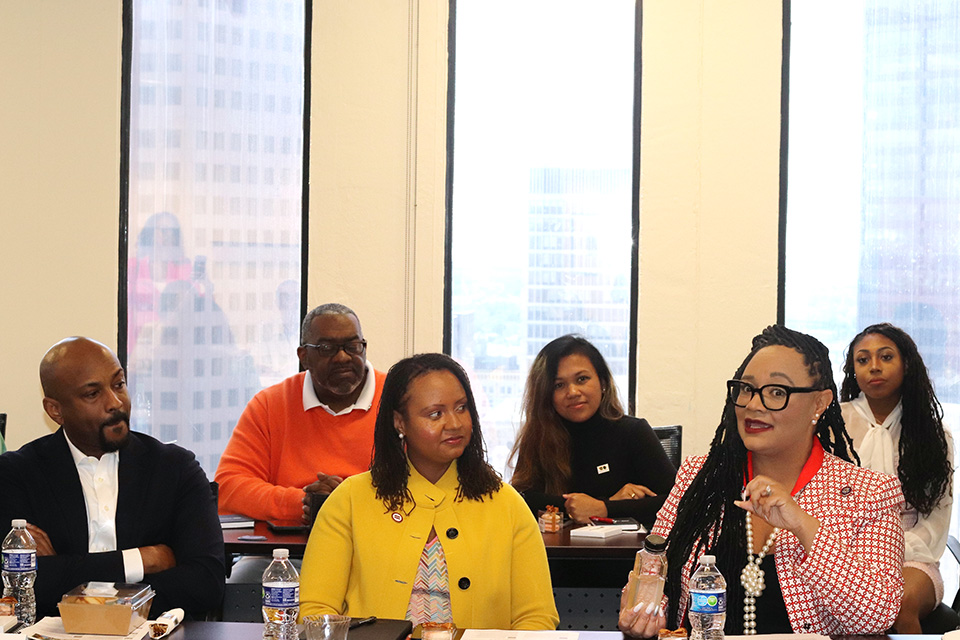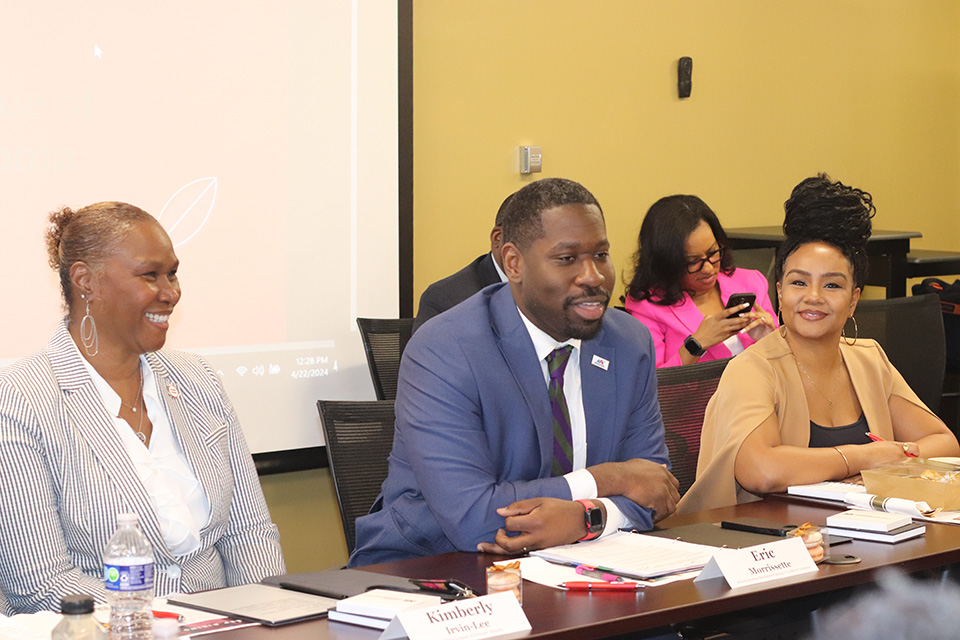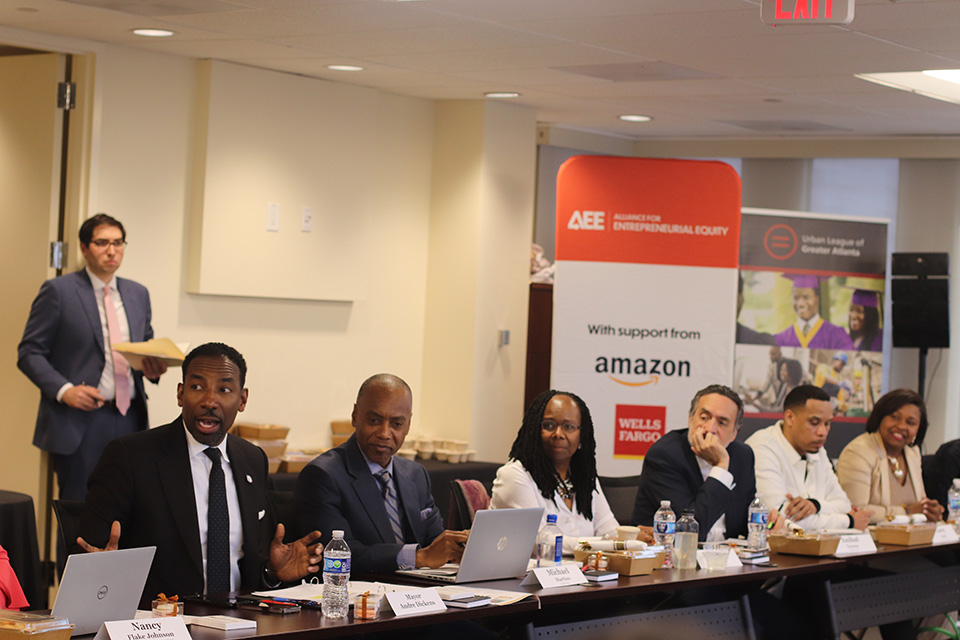A Conversation on Atlanta’s Entrepreneurial Landscape

At the end of April, the Alliance for Entrepreneurial Equity flew down to Georgia to host a roundtable discussion exploring Atlanta’s unique entrepreneurial landscape. We were joined by US Congresswoman Nikema Williams, Atlanta Mayor Andre Dickens, Acting Minority Business Development Agency Under Secretary Eric Morrissette, and Atlanta-based small business owners and entrepreneurial advocates. The event, hosted at the Urban League of Greater Atlanta’s impressive Entrepreneurship Center, was a chance for entrepreneurs to share their entrepreneurial journey and policymakers to learn more about barriers and actionable strategies. Much was discussed, but three key themes emerged throughout the conversation:
There are numerous barriers to scaling, not just starting, a business. Getting a business off the ground is no small feat, but small businessowners grapple with myriad other obstacles as they grow and sustain their business. Mayor Dickens noted that his city has many small businesses and solo entrepreneurs, but much more must be done to help them scale. Rep. Williams agreed on the need to create specific opportunities for small business owners to expand. Scaling has unique challenges, though. One small businessowner noted that many owners don’t know how to effectively use technology to grow their businesses. Others struggled with knowing when and how to negotiate things like rent and contracts, along with hiring challenges.

Capital is king. Nancy Flake Johnson, President of the Urban League of Greater Atlanta, explained her organization focuses on the 3 C’s: contracts, capital, and capacity. And within those areas, capital is key. One small businesswoman noted that she tapped her retirement fund after struggling to get initial capital for her consulting firm. Others cited how smaller dollar microloans can make or break a business that is launching or trying to handle month-to-month expenses. Those stories are far too common, as about half of ethnically-diverse small businesses don’t get the equity and credit they need, according to Wells Fargo Executive Vice President Michael Martino. Martino also stressed the importance of a good capital fit and technical expertise for entrepreneurs, along with private sector programs like the Wells Fargo Open for Business Fund. (Note: Support for our work comes in part from AEE’s Industry Council, which includes Wells Fargo as one of the founding partners.) And another small businessowner stressed building crucial relationships with bankers.

Nonfinancial barriers mount up too. Outside of capital issues, entrepreneurs must overcome numerous other challenges. Businessowners talked about needing to learn how to have a successful business model, how to get contracts and write proposals, and how to navigate rules and regulations. Other entrepreneurs may not trust government institutions, especially if they emigrated from a country with less stable rule of law. And if English isn’t one’s first language, rules and regulations can be an outsized struggle. As Rep. Williams noted, technical assistance and funding for that assistance is essential to guide entrepreneurs. But one year isn’t enough—there needs to be a long-term commitment.

The Alliance for Entrepreneurial Equity is grateful to the all the participants who took the time to join us in Atlanta. Their insights and contributions led to a highly productive conversation that will guide our policy work, driving a new era forward for women and people of color to start and scale business.
